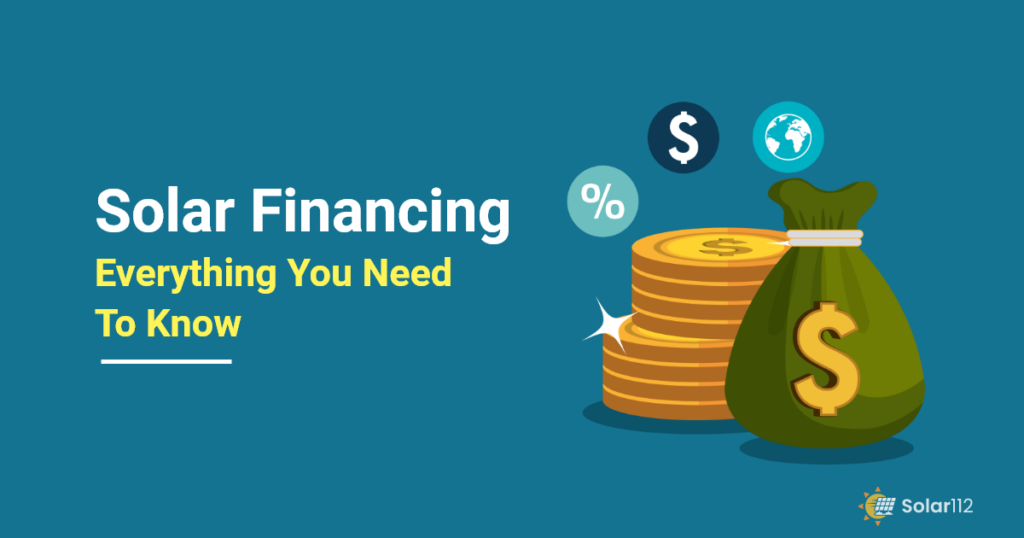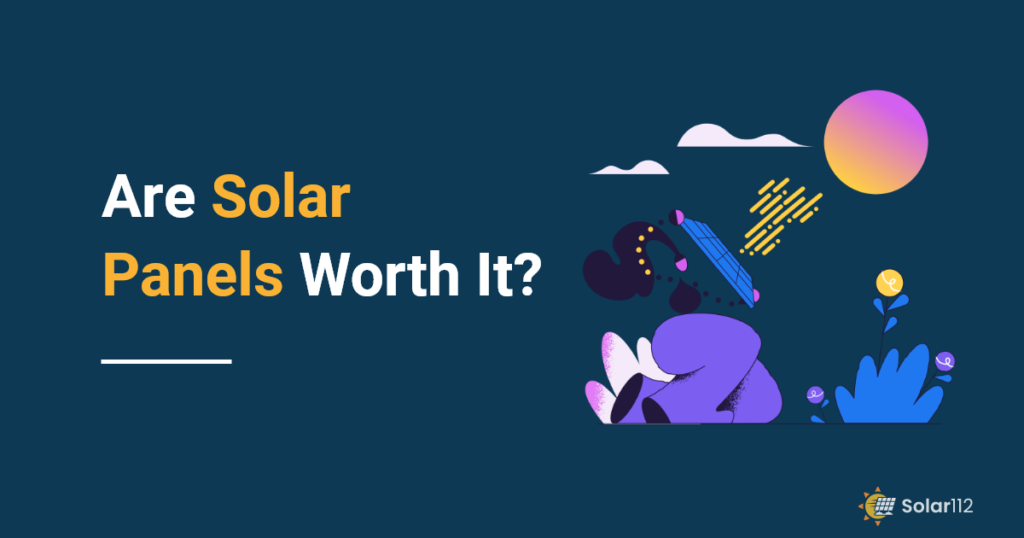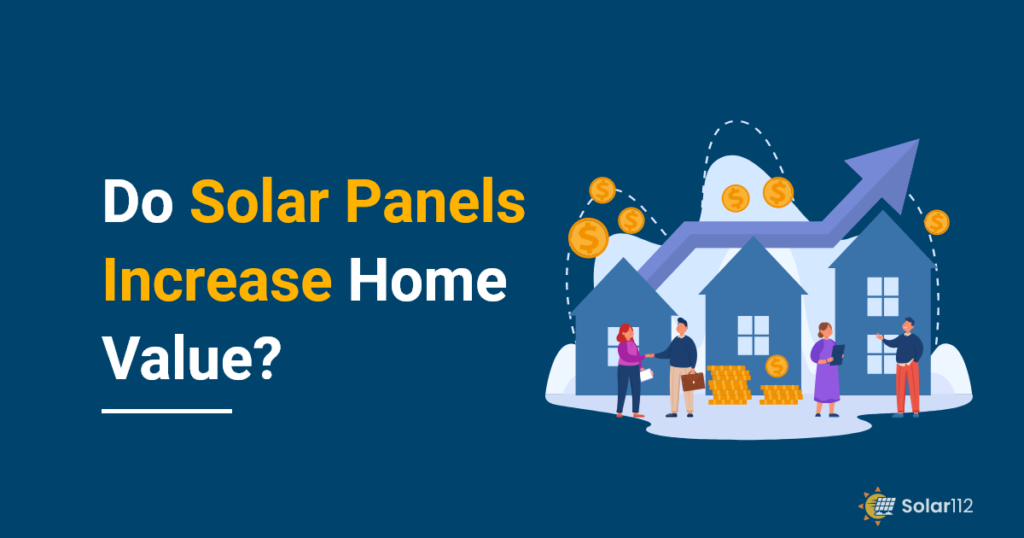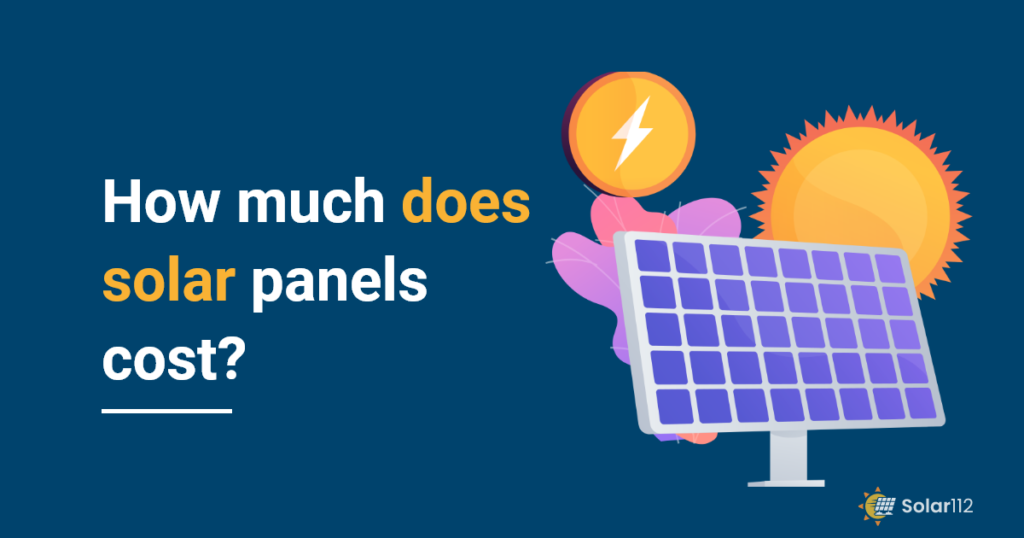Thinking of going solar? Great move!
But right now, there would be countless things popping into your head. Out of all, the primary concern might be the associated cost and ways to bear the bill. You might be gauging options for solar financing.
Whether you are looking for commercial solar installation or residential, the price tag of a solar system is no joke.
If paid upfront, the estimated cost of residential solar panels is $16000. This figure can rise up to a whopping $35000. Huge right?
Investment in a solar installation is undoubtedly a big investment for anyone. However, the long-term benefits are immense.
If you are thinking of converting to solar, we have covered all the solar financing options at your disposal. Using any of them, you can switch to green energy without breaking the bank and reduce your carbon footprint by 3000 pounds yearly.
Key Takeaways
- The cost of solar panels has decreased due to the competition but its installation and maintenance are still expensive.
- Opting for solar financing can help you make the entire project affordable.
- Detailed research is required before choosing any solar financing option.
- Understand all the pros and cons of each solar financing option before putting your initials on the agreement.
Let’s learn all the related pros and cons of each solar power financing and make an informed decision together!
Cost of solar panels installation vs savings from solar energy
Owning a solar panel not only minimizes the cost of electricity but also elevates the value of your house.
But!
Does opting for solar panel installation really save you money?
Yes, it does.
Is financing solar panels worth it?
Definitely yes.
To make you understand in a better way, let us go through this quick comparison between the price of solar installation and the overall savings you can do after switching to green energy.
Let’s compare the solar panel financing with the amount of saving you can do after going for the installation. Here you go!
The upfront cost of residential solar installation ranges between $3500 to $16000. However, the actual cost of a solar power system depends on the size you choose. Not only this, there are a few additional costs associated with the solar installation. Such as metering equipment, inverter, wiring gear, cables, battery storage (optional), etc.
Other than the installation cost, solar panels need periodic cleaning and an inverter. Plus, if you have an installed battery then it has to be replaced after a couple of years of usage.
So, how much you can save with a solar power system?
An average homeowner can save approximately 600 units of electricity per month. With a 5kW installed residential solar system, you can save $75.2.
If your utility bills come to around $40.33 each month, with a 5kW solar system, the electricity bill would be close to zero. Additionally, if your monthly electricity bill is about $94.12 per month, then with the same system it can be reduced to $53.78 per month.
With these figures, you can figure out the amount of savings you can do throughout the year.
Now if you weigh the gain and the cost of solar system installation. Solar is undeniably a sustainable option with guaranteed savings on utility bills.
Let us quickly get down to the popular solar financing options you have got at your disposal.
Top 05 solar financing option to bear the cost of installation
Solar financing is a great option for those individuals who are unable to pay the entire cost of the solar system at once. The key objective of opting for solar power financing is to make things a lot easier for those who want to go green without breaking the bank.
Here is the list of options for financing solar that you can consider. You can use any of them to back the entire solar energy project easily.
Solar loans
A solar loan is a loan for solar rooftops for homes. There are many residential solar financing companies that help in making the entire solar project affordable for people who are interested in installation but don’t have enough cash to purchase it.
As the average cost of a residential solar system is around $20000, going for this financing option makes more sense.
Solar loans are personal loans designed for making solar system installation easy on homeowner’s finances. It varies between 15 to 20 years. You can choose the best solar loan with the longest tenure to minimize the monetary burden that comes with the premium payment each month.
Types of solar loans
There are several types of solar panel loans available for homeowners. To get the right type of solar energy loan, you need to familiarize yourself with the following popular options and the terms associated with each.
Secured solar loans
Secured solar loans can be acquired from the bank or the solar provider you are planning to work with. This type of loan for solar systems involves collateral which can be any asset including a car. If you include collateral, you increase the chances of availing of the loan quickly. This can be an energy-efficient mortgage for many homeowners.
Also, the rate of interest will be lower which can bring down the entire cost. However, if you fail to repay the loan, the collateral will be possessed by the loan provider. So, be cautious with your repayments.
Unsecured solar loans
To acquire an unsecured solar loan, you don’t need to include collateral in this solar financing option. You can escape from risking the possession of your asset. However, the rate of interest in unsecured solar rooftop loans is quite higher. Also, if the lender thinks that you are a risky borrower, they might not even accept your application.
Pros and cons of solar loans
Solar loans for solar rooftops might ease your burden when it comes to buying them. However, you should weigh its pros and cons before opting for this solar panel financing.
| Pros | Cons |
|---|---|
| Makes solar energy projects affordable. | Borrowers bear the cost of maintenance. |
| Borrowers can unlock many tax benefits. | Higher rates of interest are associated with unsecured solar loans. |
| Lower long-term cost. | |
| Quick ownership. | |
| Minimum requirement of upfront cash. | |
| Eligibility for incentives and rebates. |
Tips to choose the right solar loan
To get the most out of your solar panel loan, you need to choose it smartly. From knowing the amount of fee you are paying, its impact, and the payback period to understanding the additional cost, there are many things that you should consider asking your lender.
- Ask for the best and most affordable deal.
- Understand the tenure of the loan and the rate of interest charged.
- Make sure that you read all the associated terms.
- Read the agreement thoroughly before putting your initials on it.
- Check if there are pre-payment penalties. Most solar loans don’t have such fees if you want to repay the loan early. You should confirm it from the lender.
Cash Payments
A cash purchase is one of the good options when it comes to residential solar financing. You can escape from the entire procedure of acquiring loans for the solar system if you take this route. If you have a good amount of savings in your bank, you can use it and pay for the solar installation upright.
We agree that solar installation is a huge investment. Many of you might find the idea scary of putting everything on a solar installation. But financing the solar energy project with upfront money is much easier than taking loans.
Like any other solar panel financing option, paying cash outright also has some downsides. Better learn them before putting your entire savings into a solar project.
| Pros | Cons |
|---|---|
| Interest-free solar panels. | High upfront expense. |
| Save a lot of money in the long run. | Putting huge sums of saved money can be risky unless you are staying at your home for years. |
| Maximum ROI (return on investment). | |
| Beneficial for solar tax credits. | |
| Enjoy green benefits on your own terms. |
Solar lease
A solar lease is another best way to finance solar panels when you don’t have enough savings or want to avoid taking loans. PPA or Power Purchase Agreement is called a solar lease. This agreement is signed between you and a solar power developer wherein you lease your roof or property.
They sell you the electricity for putting the solar system on your roof. With this solar panel financing option, you can skip the cost of solar installation.
However, you end up paying for something that you don’t own. The price of uninstalling solar panels can be costly if you think of selling your house in the future. If you find this financing option better, we advise you to sign a lease term that is flexible.
| Pros | Cons |
|---|---|
| Comparatively lower electricity bills than via utility. | No tax-saving incentives. |
| Avoid huge upfront costs. | Solar system owner avails themselves of all the benefits. |
| No requirement to pay installation and maintenance fees. |
Renting
Renting is another solar financing option that you can utilize for the project. However, you can avail of this option through Tesla only. You can enjoy green energy at comparatively lower rates than cash or loan options. But it works similarly to a solar lease wherein you don’t own the installed solar panels.
Other than lowering utility bills, there are not many advantages to renting solar panels. But saving money on electricity is still a good deal for many homeowners. You can weigh the pros and cons of renting solar panels and then move forward.
| Pro | Cons |
|---|---|
| Save money on utility bills. | Third-party owns the solar panels. |
| Pay low monthly costs. | Challenging to sell the house. |
| Less financial burden. |
Cash-out refinancing/HELOC
Cash-out refinancing in solar panel financing is like pulling out money from the equity of your house. You can utilize this option if you don’t want to take any of the above solar panel financing options. Using this financing, you can lower your electricity bills without spending a huge upfront cost.
This option is quite popular among homeowners who look for house remodeling. HELOC stands for home equity line of credit which allows you to quickly access the money for financing the solar energy project. However, this financing option has some pitfalls you should know before opting for it.
| Pros | Cons |
|---|---|
| Quick access to money to finance the solar project. | Takes time to get approval for the application. |
| Low-interest solar loans. | Puts your asset (house) at risk if not repaid on time. |
| Instant saving on electricity bills. |
Frequently Asked Questions
-
What is solar financing?
Solar financing is a vendor that helps individuals in covering the entire cost of the solar system including the installation fee. However, it doesn’t include the cost of maintenance.
-
Is it safe to avail of a solar loan?
Solar financing is a vendor that helps individuals in covering the entire cost of the solar system including the installation fee. However, it doesn’t include the cost of maintenance.
-
What is the main condition to get a solar loan?
To obtain solar panel loans smoothly, you need to maintain a good credit score. A good credit score also helps you bag a loan at the lowest interest rate.
-
What is commercial solar financing?
Commercial solar financing is designed for business properties. This financing option helps commercial property owners to lower the upfront cost of solar installation.
-
What is PPA in solar financing?
PPA or power purchase agreement is a contract wherein the homeowners pay for the power to the solar provider, not the panel installation. The amount of the bill depends on the rate of produced electricity through solar panels per kWh (kilowatt-hour).
The Closing on Solar Financing
Solar is a green energy that is not only positive for the environment but also saves your hard-earned money. Due to massive competition in the solar industry, the cost of installation has come down in recent years. However, its maintenance is still quite expensive.
But! The returns after solar installation are quite impressive. Opting for any of the above solar financing options will make the entire solar project affordable for you. But, do enough research before making this decision as it will affect your finances for a couple of years.
Never forget that you are making a long-term investment for your own good.
So, without much stress, install the best solar panel with the help of any solar financing and enjoy a greener home without jiggling your funds!



